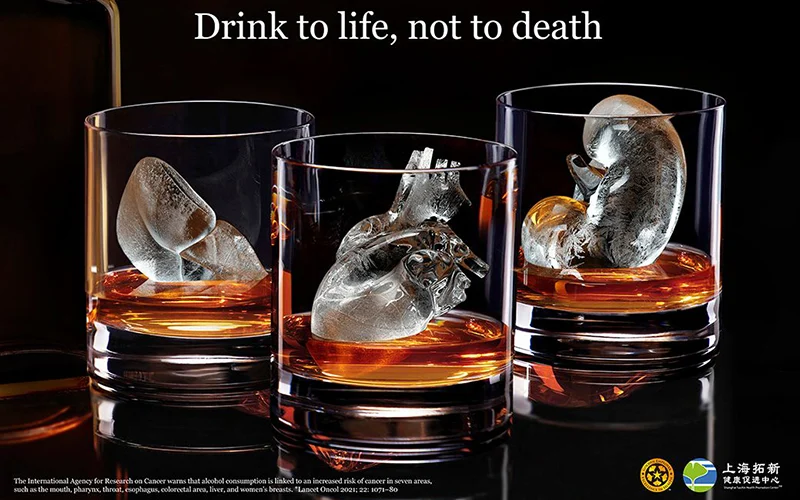Health experts across India are sounding the alarm over a significant increase in alcohol-related cancer cases. This surge underscores the urgent need for heightened public awareness and policy interventions to address the health risks associated with alcohol consumption.
Alcohol as a Carcinogen
The World Health Organization (WHO) has long classified alcohol as a Group 1 carcinogen, placing it in the same category as known hazards like asbestos and tobacco. Despite this classification, public awareness about the link between alcohol and cancer remains limited.
“Alcohol consumption is directly linked to an increased risk of over 20 types of cancers,” states Dr. Puneet Garg, a Vascular Interventional Radiologist and Endovascular Surgeon at Safdarjung Hospital in New Delhi. “These include cancers of the mouth, throat, esophagus, stomach, colon, rectum, pancreas, breast, and prostate.”
Mechanisms of Alcohol-Induced Cancer
The carcinogenic potential of alcohol is primarily attributed to its metabolism in the body. When consumed, alcohol is converted into acetaldehyde, a toxic compound that can damage DNA and proteins, leading to mutations that may result in cancer. Additionally, chronic alcohol use impairs the absorption of essential nutrients, such as vitamins A, C, D, E, and folate, which play crucial roles in maintaining cellular health and preventing cancer.
“Chronic alcohol consumption not only introduces harmful substances into the body but also hampers the body’s natural defenses against malignant transformations,” explains Dr. Taraprasad Tripathy, Assistant Professor at AIIMS Bhubaneswar.
Statistical Insights
Global data highlights the severity of the issue. The WHO estimates that nearly 4% of global cancer cases are directly attributable to alcohol consumption. In India, the situation is particularly concerning. A study published in The Lancet reported that in 2020 alone, alcohol was responsible for approximately 62,100 new cancer cases in the country.
Advocacy for Warning Labels
In light of these alarming statistics, there is a growing call for more explicit health warnings on alcoholic beverages. U.S. Surgeon General Vivek Murthy has advocated for cancer warning labels on alcohol products, emphasizing that clear labeling can help consumers make informed choices and raise awareness about the associated health risks.
Health Effects and Warning Signs
Drinking alcohol regularly can weaken the immune system, making it harder for the body to fight off diseases, including cancer. Different cancers linked to alcohol consumption may show varying symptoms:
• Mouth and Throat Cancer: Long-lasting sores in the mouth, unexplained bleeding, difficulty swallowing, and a persistent sore throat.
• Esophageal Cancer: Symptoms may include chest pain, trouble swallowing, unintentional weight loss, hoarseness, and a chronic cough.
• Liver Cancer: Warning signs can be jaundice (yellowing of the skin and eyes), bloating in the stomach, ongoing fatigue, and loss of appetite.
• Breast Cancer: Changes in breast size or shape, lumps in the breast or underarm, skin dimpling, or unusual nipple discharge.
Early detection is crucial for improving treatment outcomes. “With advanced medical treatments available today, timely diagnosis significantly enhances survival rates,” notes Dr. Garg. “However, if cancer spreads (metastasis), it becomes challenging to treat with surgery or chemotherapy.”
Preventive Measures
To mitigate the risks associated with alcohol-related cancers, experts recommend:
• Reducing Alcohol Consumption: Limiting or abstaining from alcohol intake is one of the most effective ways to lower cancer risk. The WHO emphasizes that no level of alcohol consumption is entirely safe.
• Regular Screenings: Especially for high-risk individuals, routine medical check-ups can facilitate early detection of potential malignancies.
• Public Education: Raising awareness about the link between alcohol and cancer through community programs and media campaigns.
• Policy Interventions: Implementing regulations such as mandatory health warning labels on alcoholic beverages to inform consumers about the risks.
Conclusion
The rising incidence of alcohol-related cancers in India necessitates immediate and concerted efforts from both public health authorities and individuals. By acknowledging the risks, promoting preventive measures, and fostering informed decision-making, it is possible to curb this concerning trend and improve public health outcomes.
References:
1. World Health Organization (WHO) – Classification of alcohol as a Group 1 carcinogen.
2. The Lancet – Study on alcohol-attributable cancer cases in India, 2020.
3. Statements from Dr. Puneet Garg, Safdarjung Hospital, New Delhi.
4. Insights from Dr. Taraprasad Tripathy, AIIMS Bhubaneswar.
5. U.S. Surgeon General Vivek Murthy’s advocacy for cancer warning labels on alcoholic beverages.
Also Read About : Blood Tests for Cancer Diagnosis: What You Need to Know
Visit Us At : https://g.co/kgs/rTqAjgt





